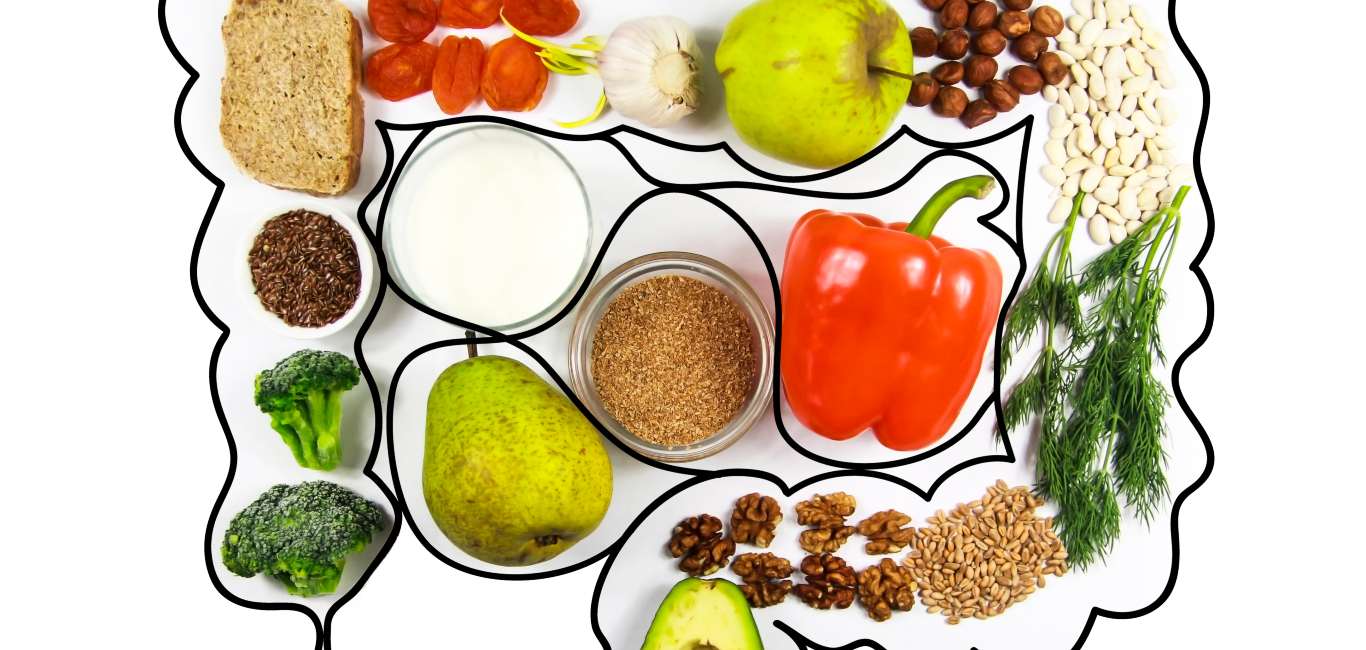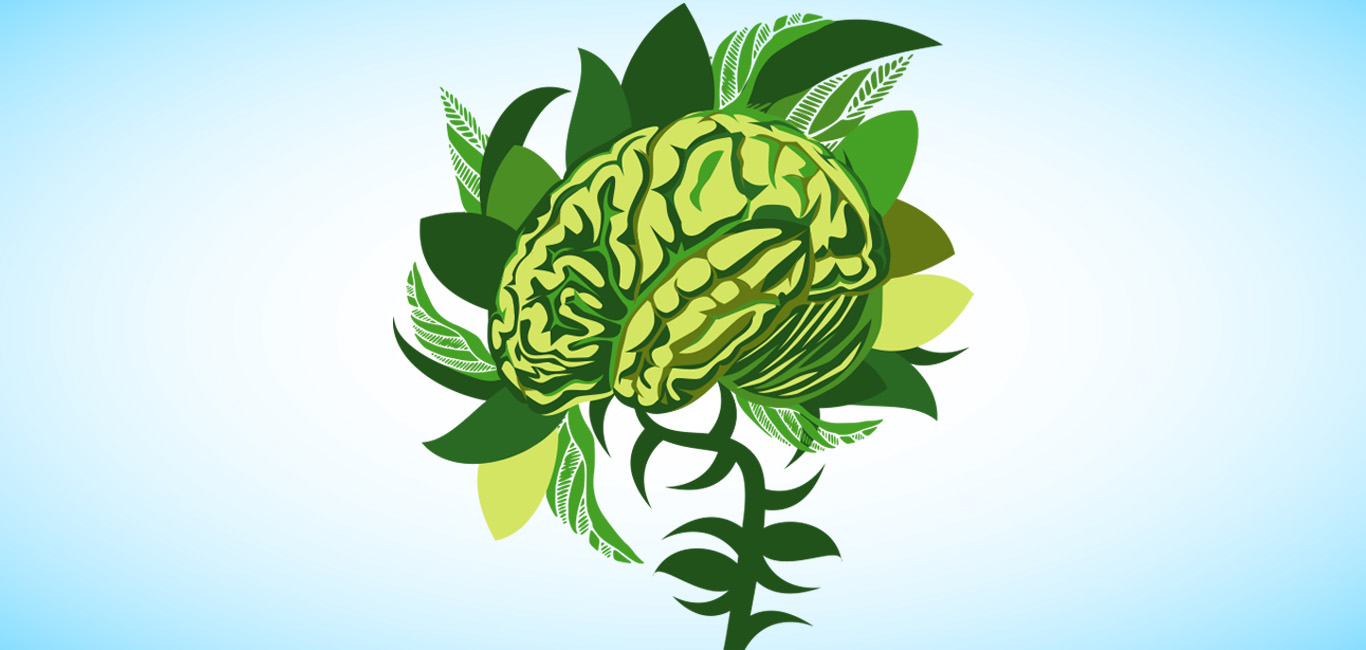
Ayurvedic experts have long believed that all health conditions start from the gut. Hippocrates, the father of modern medicine, said the same. How is that for an amalgamation of thoughts between these two medicine forms? Well, we at Happiest Health too are strong proponents of gentler and easier ways to manage health conditions.
One such gentler way that ayurveda considers is modification in diet (pathya in sanskrit).
Moreover, experts say that emotions have an impact on one’s gut health. Lately, researchers have validated the link between gut and brain.
Ayurvedic physicians believe in personalised approach (based on different body types) to food habits, lifestyle management, and medications. New research has shown that oral and gut microbiomes are unique to different body types.
Here is how ayurvedic practices can help in maintaining gut health.
Ayurveda and gut
Koshta (Sanskrit for gut and bowel movements), has been defined as the internal pathway for manifestation of health conditions.
Based on the body types and dominance of three vital entities (vata, pitta, kapha), ayurvedic practitioners have identified three kinds of gut behaviour. People with air element dominance (vata prakriti) have a hard and constipated bowel. Those with fire element predominance (pitta prakriti) experience smooth and normal bowel and those with a dominance of water element (kapha prakriti) will have moderate bowel movement.
A healthy relationship with food is key to a healthy gut
Sonam Singh, ayurvedic and functional medicine practitioner from Delhi, tells Happiest Health that one should understand what suits one and follow it regularly.
One should analyse the foods and the discomforts caused after eating (the feeling of heaviness, increased appetite, hot flushes). By doing so, one can Identify the triggers for disturbed digestion and plan one’s meals accordingly, she adds.
Making the right choices
Dr Satish Pai, professor from JSS Ayurvedic Medical College, Mysuru, Karnataka, recommends well-cooked and easily digestible foods (supachya in Sanskrit). Consuming freshly prepared (warm and moist) foods ensures optimal digestion, which in turn leads to a healthier gut, he adds.
Something that is easy to digest for one may not be the same for others. It is always customisable.
Read more about customising the diet based on ayurvedic principles here.
The balancing act
A balanced diet is always subjective and individualised. Ideally it should have the right combination of liquids and solids. It should be packed with a combination of all six kinds of tastes (sweet, sour, salt, astringent, bitter and pungent) to ensure that all the nutrient requirements are fulfilled, says Dr Dhruva Prasad, assistant professor from Sri Sri College of Ayurvedic Science & Research Hospital, Cuttack, Odisha.
Read more about ayurveda’s six everyday tastes for a healthy living here.
Portion size and frequency of meals
There should be at least eight hours gap between two meals, says Singh.
Moreover, one should eat a moderate portion size for breakfast, a good portion during the day (lunch) and a smaller size for dinner, she adds.
Research shows there is a link between meal frequency, eating timing and fasting time. Those who skip breakfast, eat the last meal late at night, and consume more than six meal portions, have reduced insulin sensitivity, disrupted cholesterol levels, and negative alterations in gut microbiota.
Hydration is important
Dr Prasad says the way one drinks water impacts one’s gut health. “We recommend drinking water in between meals as it can help in easy disintegration of food,” he says.
Besides it is not recommended to consume water either before or after food intake. A 2018 study found out that consuming water prior to meal reduces the energy intake and leads to weight loss.
Read more about ayurvedic approach to drinking water here
Role of emotions in gut health
Gut is called the second brain as there is bidirectional communication between the enteric and central nervous systems (gut-brain axis). Ayurvedic experts talk about the mind (emotions) and its connection with gut health. They say that a happy mind leads to better eating habits, while stress and anxiety leads to sugar cravings and binge eating. This is where the sattvic diet comes into play.
Eating sattvic foods that include fresh fruits, veggies, whole grains, less processed and less spicy foods can help in achieving a healthy state of mind and in turn a healthy gut.
Read more about the sattvic diet here.
Adding probiotics improves gut microbiome imbalance
Probiotics and fermented foods have been proved to improve health via microbiome gut-brain axis. Dr Pai recommends probiotics such as buttermilk to improve the dysbiosis (an imbalance in the gut microbiota).
“Including fermented foods such as kanji, dosa, fermented rice, and pickles also helps,” he adds.
If one has reduced appetite, bloating, distention, indigestion, and constipation, then one can add culinary ingredients such as asafoetida (hing) or dry ginger and rock salt.
Eating and physical activities
Singh says about the role of exercises in maintaining gut health, “We should be following a diet which is in sync with our lifestyle.” The dietary recommendations differ based on the extent of physical activity a person is involved in. For instance, an athlete requires a high-protein diet (with 2500 Kcal/day) while someone with sedentary lifestyle can follow a regular diet (containing 1800Kcal/day).
A study has identified that exercises can modify gut microbiota. Moreover, exercises prevent pathogens from attaching themselves to the intestinal mucus layer.
Fasting resets gut health
“Occasional fasting can also help keep gut health in check,” says Singh. It is believed that fasting helps in gut detox by digesting the toxins and has now been proven by researchers. A 2021 study found that besides reducing blood pressure and body weight, fasting can modify the gut microbiome in people with metabolic syndromes.
Read more about fasting the ayurvedic way here.

















